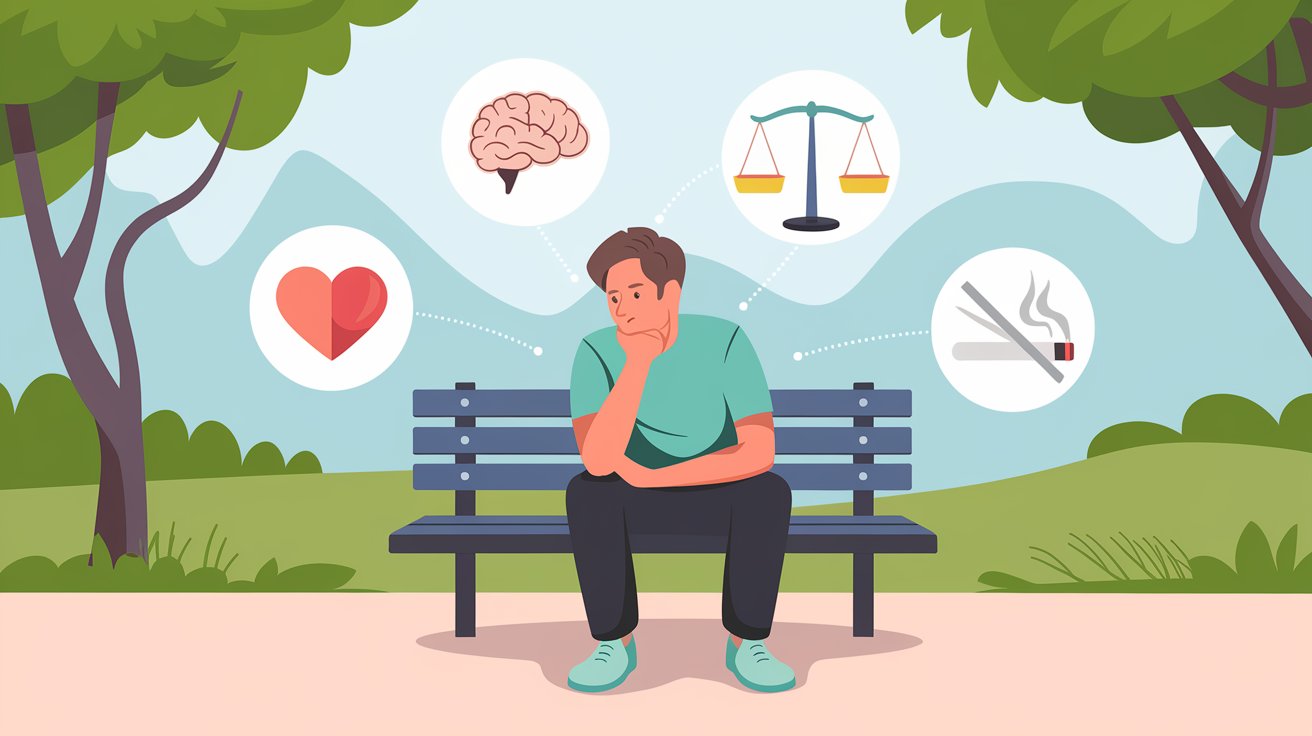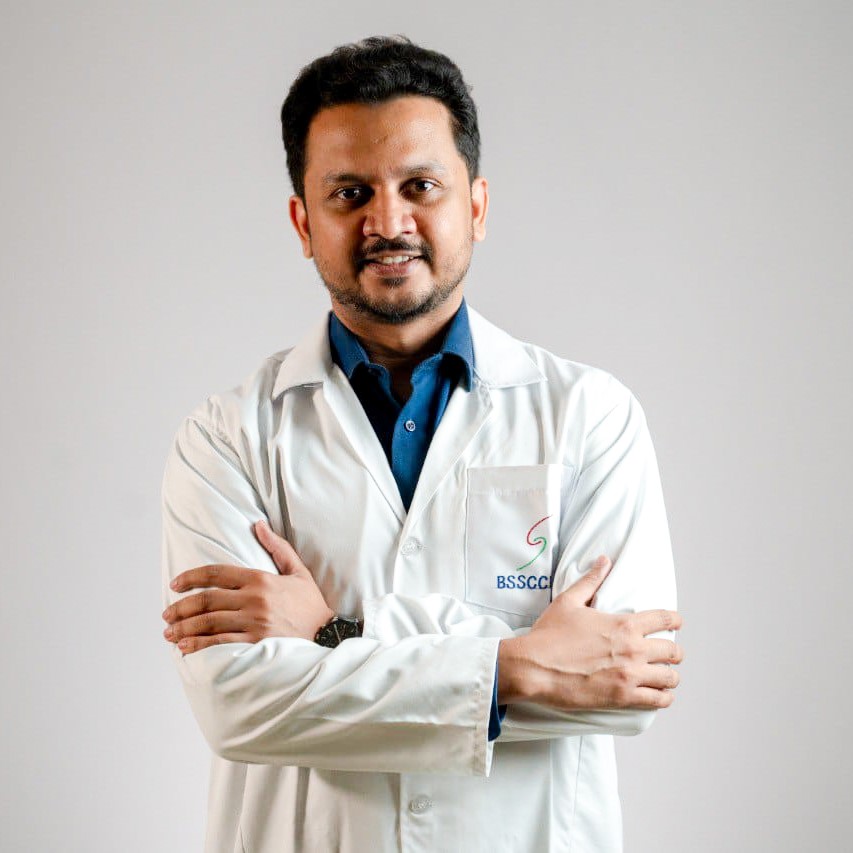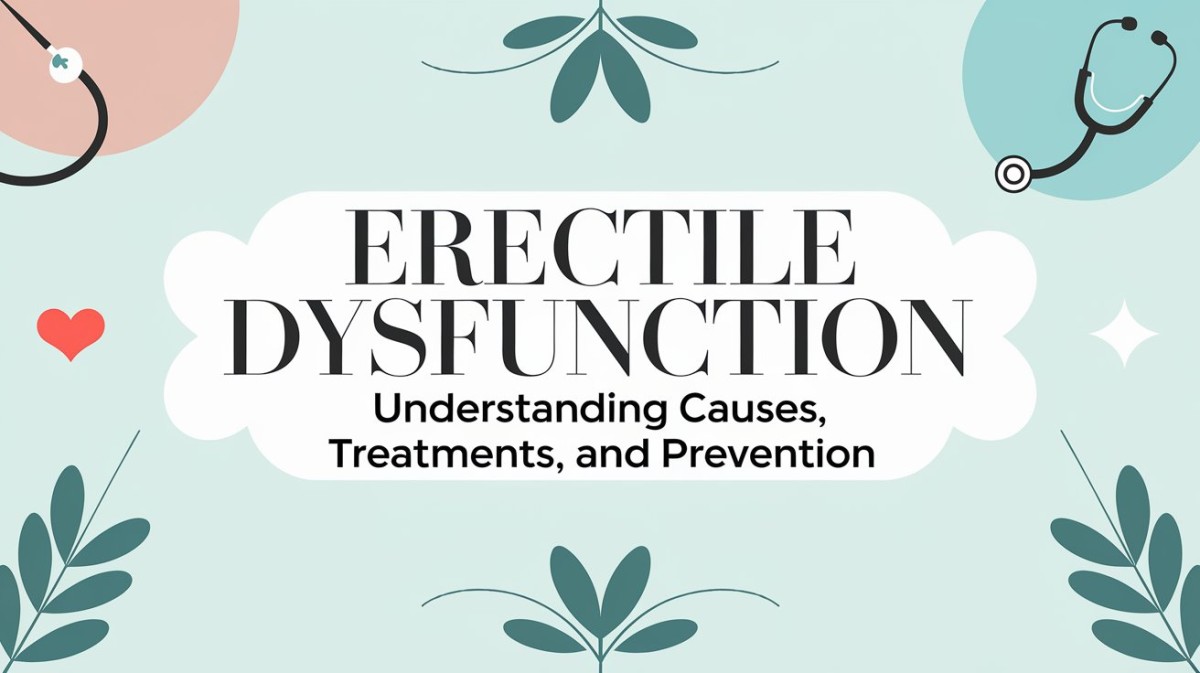Do you or someone you know have erectile dysfunction?
Does the condition cause feelings of loneliness or are you getting worries in your interpersonal interactions?
Don’t worry, it is not you alone- millions of men are bound to experience this at one point in their lives. But here's the good news: ED is curable and getting to know the causes and remedies is the surest way to getting your manhood back.
In this blog, we are going to learn about the different types of causes of erectile dysfunction, treatment methods and when to consult a urologist. It doesn’t matter if you go through occasional struggles or have ongoing issues – this guide is here to provide you with useful tools.
What Is Erectile Dysfunction?

Erectile dysfunction also known as ED is defined as the physiological inability to sustain or achieve an erection satisfactory for sexual intercourse. Some times it is normal to have a problem with getting an erection once in a while but if it is frequent there could be a medical reason or stress.
ED is prevalent among all aged men but is most common among the elderly. It is not an isolated problem; it is a predictor of other health complications like heart disease or diabetes.
What Causes Erectile Dysfunction?
1. Physical Causes
ED is generally associated with some kind of physical health issues. These include:
❖ Cardiovascular Disease: Problems like hypertension and atherosclerosis will reduce the blood flow, which is a important for erection to occur.
Also read our content on Cardiopathy: Causes, Symptoms, and Cure.
❖ Diabetes: Elevated blood sugar can affect the blood vessels and nerves that help produce an erection.
❖ Obesity: Obesity may reduce the level of testosterone and accelerate the development of vascular diseases.
❖ Hormonal Imbalances: ED can also be due to low testosterone levels or thyroid problems.
❖ Neurological Disorders: Other diseases such as Parkinson’s or multiple sclerosis can affect the nerves that relay information to the penis.
❖ Chronic Kidney Disease: This may impact on hormones and blood flow and in so doing, cause the debilitating ailment – ED.
2. Psychological Causes
Psychological factors are critical factors in sexual functioning. Common psychological causes include:
❖ Stress: Stress generally emanating from work pressure, family pressure, financial pressure among others can be a hindrance to sexual appetite as well assexual performance is normally affected by stress factors such as work stress, family stress or financial stress.
❖ Depression and Anxiety: Such conditions usually result in loss of sexual desire and the occurrence of erectile dysfunction.
❖ Performance Anxiety: Some people have a fear of sexual failure which becomes a cycle that they have to go through.
Also, read more on The Impact of Stress and Anxiety on Sexual Health!
3. Lifestyle Factors
Certain habits can exacerbate ED, such as:
❖ Smoking: Forces, damages, blood vessels and thereby decreases the blood flow of blood to the penis.
❖ Alcohol Consumption: Alcohol is toxic to the central nervous system and excessive drinking can lead to the damaging of the CNS.
❖ Drug Use: Substance related disorders such as cocaine affect recreations and in this case sexual activities.
❖ Sedentary Lifestyle: They found out that lack of exercise leads to poor circulation, and reduced levels of testosterone.
Treatment Options for Erectile Dysfunction

The good news is that erectile dysfunction is a very treatable condition. Some are simple measures changing a diet or taking a pill, while others are getting complex surgeries. Here’s a breakdown of the options:
1. Lifestyle Changes
For many men, addressing the root cause of ED starts with improving overall health:
❖ Exercise: Physical exercise enhances blood flow and helps in increasing the hormone testosterone.
❖ Diet: A dietary and anticholesterol diet (foods, including fruits and vegetables, whole grain, and lean proteins) improves blood circulation.
❖ Quitting Smoking: Enhances vascular health to a large extent.
❖ Reducing Alcohol: Reducing the amount of alcohol consumption improves erectile capacity.
2. Medications
Several prescription medications effectively treat ED:
❖ PDE5 Inhibitors: Most of the popular drugs for erectile dysfunction include Sildenafil (viagra), Tadalafil (cialis ) and Vardenafil (levitra) which help in promoting blood flow to the penis.
❖ Testosterone Therapy: In the case of low testosterone levels in males, treatment with hormone increases the capability of a man sexually.
❖ Note: One should seek the services of a doctor whenever he/she wants to use a drug to prevent complications of side effects or other drugs.
3. Counseling and Therapy
If psychological factors are contributing to ED, therapy can be beneficial:
❖ Cognitive Behavioral Therapy (CBT): Supports the relaxation of anxiety and changing out negative thoughts.
❖ Couples Counseling: Successfully addresses problems related to intimacy between two partners in a relationship.
4. Devices
For men who prefer non-drug options, devices can be effective:
❖ Vacuum Erection Devices: You need to pull a vacuum around the penis initially and then fill that vacuum with blood.
❖ Penile Rings: Sustain an erection by micro blood vessel conditioning and interference with the normal process of venus draining out of the penis.
5. Advanced Treatments
In cases where other methods are ineffective, more advanced interventions may be considered:
❖ Penile Injections: Drugs used in operations are administered in the penis to produce an erection.
❖ Surgical Implants: These may be inflatable or semi rigid and are to be implanted surgically into the penis.
❖ Vascular Surgery: Little done but can help in increasing blood flow to the penis in a few instances.
When to Consult a Urologist
Sensing when a consultant is required goes a long way. You should consult a urologist if:
❖ ED is present for over two weeks, which should change the lifestyle.
❖ You have other complains for instance loss of sexual desire, pain in the testicles or any sign of hormonal changes.
❖ You have other ongoing health problems such as diabetes, heart ailment, or high blood pressure.
❖ ED is impacting your mental health or/and the relationships you have.
❖ Drugs or folk treatments have not worked.
And, a urologist can accomplish a comprehensive assessment of the man’s condition, meaning manual tests, blood test or imaging tests to determine the cause of ED and advise the patient on the best way forward.
Preventing Erectile Dysfunction

While not all cases of ED are preventable, adopting healthy habits can significantly reduce your risk:
❖ Keep to a good diet and ensure that you are not overweight.
❖ Exercise in order to have regular blood circulation and proper functioning of your heart.
❖ Avoid smoking and consume alcohol to a moderate amount.
❖ Reduce stress through meditation, necessarily practicing yoga, or having sessions with a specialist.
❖ Routine appointments should be made to review and control long-term diseases.
For such more related content don't forget to check out our blogs on Treatments.
Final Thoughts
Erectile dysfunction is a fairly usual problem in some very early phases which is not appropriate to disregard. But asking for help is when people should be brave – so, seeing a counselor is not something you should be ashamed of. A urologist can advise you on further testing and treatment so that you can regain control of your sexual health and general health.
If you have some of these signs of ED, do not delay coming in for treatment. This is why early intervention is key – it means that it’s possible to reverse ill effects before they take root in your body and destroy it and your confidence too.
Remember: Your health is important and ED is one way to enhancing not only you sexual satisfaction but your overall well being.

